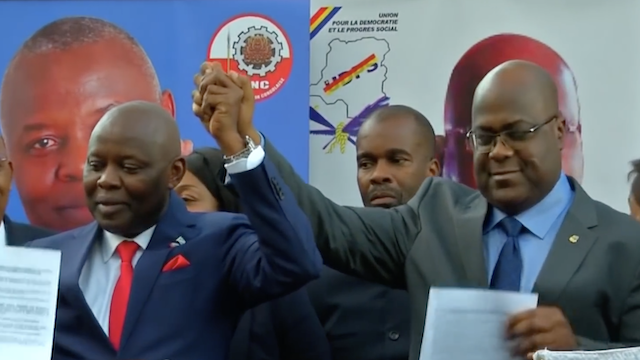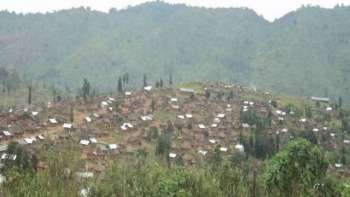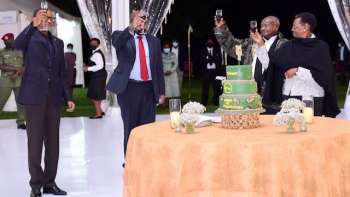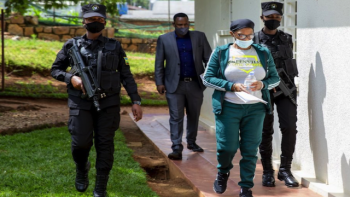"I would like to thank those who voted for me. I also thank those who did not vote for me. Today, Congo has won. It's not the victory of one side against another. I have engaged in this campaign to reconcile the Congolese with themselves, I commit myself to that. Tomorrow, the Congo we are going to build will not be a Congo marked by division, hatred and tribalism. It will be a reconciled Congo, a strong Congo, focused on its development in peace and security for all."
It is in these terms that Felix-Antoine Tshisekedi, the newly elected president of the Democratic Republic of the Congo (DRC) acknoweldged his victory in the recent controversial elections.
Democratic Republic of the Congo (DRC) president Joseph Kabila has, against all expectations, accepted to step down and organized elections, after 2 years of transition. Felix-Antoine Tshisekedi, the son of the late congolese opposition veteran Etienne Tshiseked, achieved what his father tried and could not achieve throughout his long political career. His supporters have long claimed that Etienne Tshisekedi is the country's "president elect" since the last presidential poll in 2011, but that was just a claim.
Another major win was scored by Felix Thsisekedi's ally and campaign director, Vital Kamerhe, the leader of Union for the Congolese Nation (UNC). Vital Kamerhe was supposed to lead the transition as the Prime Minister, following the October 2016 political agreement between the government and fringe opposition groups, that allowed Joseph Kabila to remain in office beyond the term provided by the constitution and that ended on December 19, 2016. Under the deal, Kabila's term was extended to late 2018.
Joseph Kabila had then outplayed Vital Kamerhe (see DR Congo: Presumed Prime Minister, Vital Kamerhe Backstabbed by Joseph Kabila?, Political Dialogue Opens in DRC: Vital Kamerhe, the Next Prime Minister?, Political Dialogue in DRC: Vital Kamerhe To Become Next Prime Minister, Sources in Kinshasa Say, and DR Congo: Vital Kamerhe's to set up new government; US Investigating Joseph Kabila's Close Aides for Kleptocracy).
Vital Kamerhe appears to have gotten his revenge. According to AfroAmerica Network sources in Kinshasa, during the whole process of getting Felix Tshisekedi elected and confirmed as President, Vital Kamerhe played a major role as the key negotiator with Joseph Kabila. He spent hours, day and night, in closed room meetings with Joseph Kabila's Chief of Staff, Néhemie Mwilanya Wilondja, to hammer down the deal and agree on key government positions.
In 2016, after his deception, Vital Kamerhe reacted saying that "I have taken note of the appointment. I never hid that my ambitions have always been beyond the post of prime Minister." The victory could be the sweet reward he has been looking for.
According to the sources, Vital Kamerhe is expected to be the next Prime Minister or the Chief of Staff of Felix Tshisekedi. If he gets the position, gone will be the days when Vital Kamerhe, too confident to the point of naivety, misread Joseph Kabila's intentions to backstab him.
However, given the controversy behind the elections, the days ahead may be challenging and trying for both DR Congo President Felix Tshisekedi and his right arm, Vital Kamerhe.
Among the biggest losers is Rwandan dictator Paul Kagame, who allegedly was trying to back the side led by Moise Katumbi and Jean-Pierre Bemba, through Martin Fayulu and . His underhand reaction may throw the Democratic Republic of Congo, especially the Eastern part, into chaos.
The upcoming few weeks will be critical for a peaceful transition in the Democratic Republic of Congo, the first post independence from colonial powers.

















